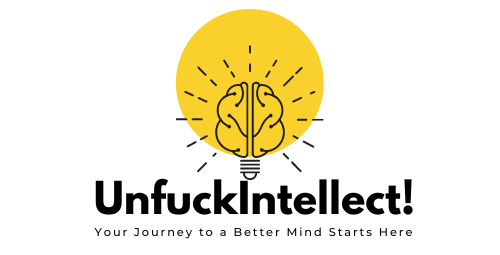
boosting concentration, improve focus, productivity techniques, mindfulness exercises, cognitive training
In our fast-paced world, maintaining and boosting concentration and focus is a challenging yet essential skill. With constant distractions from digital devices, social media, and the demands of daily life, finding ways to enhance or for boosting concentration and focus is crucial for productivity and success. This article explores various techniques and exercises that can help you boost your concentration and focus effectively.
Contents
Understanding Focus and Boosting Concentration
Before diving into techniques and exercises, it’s essential to understand what Boosting concentration and focus are and why they are vital.
What is Concentration?
Concentration is the ability to direct your attention to a specific task or activity without being easily distracted. It involves sustaining attention over a period of time and filtering out irrelevant stimuli. Concentration allows you to immerse yourself fully in what you’re doing, whether it’s work, study, or a hobby.
What is Focus?
Focus is the act of prioritizing and dedicating mental energy to one particular task or goal. It involves narrowing your attention to achieve deeper engagement and higher efficiency. Focus is about zeroing in on the task at hand and pushing aside other thoughts and distractions.
The Importance of Concentration and Focus
Improved concentration and focus lead to enhanced productivity, better quality work, and the ability to complete tasks more efficiently. They also contribute to lower stress levels, increased job satisfaction, and greater success in personal and professional endeavors. By boosting concentration and focus, you can achieve your goals more effectively and enjoy a more fulfilling life.
Techniques to Boost Concentration and Focus
1. Set Clear Goals
Having clear, specific goals helps direct your attention and provides a sense of purpose. Break down larger tasks into smaller, manageable steps to make them more approachable.
Example: Instead of setting a vague goal like “get in shape,” define it as “lose 10 pounds in three months by exercising three times a week and eating a balanced diet.”
2. Create a Distraction-Free Environment
Eliminate potential distractions in your workspace. Turn off notifications, close unnecessary browser tabs, and inform others of your need for uninterrupted time.
Example: Use noise-canceling headphones or listen to focus-enhancing music to block out background noise. Organize your workspace to minimize visual distractions.
3. Use Time Management Techniques
Effective time management techniques, such as the Pomodoro Technique or time-blocking, can help you maintain focus and avoid burnout.
Example: Work for 25 minutes, take a 5-minute break, and repeat. After four cycles, take a longer break. This helps maintain high levels of concentration without overstraining.
4. Prioritize Tasks
Identify and prioritize your most important tasks. Tackle high-priority tasks when your energy and concentration levels are highest.
Example: Use the Eisenhower Matrix to categorize tasks into urgent/important, non-urgent/important, urgent/not important, and non-urgent/not important.
5. Practice Mindfulness
Mindfulness techniques, such as meditation, can improve your ability to concentrate by training your mind to stay present.
Example: Spend 5-10 minutes each day practicing mindfulness meditation, focusing on your breath and observing your thoughts without judgment. This practice can enhance your overall ability to maintain concentration.
6. Take Regular Breaks
Taking regular breaks helps prevent mental fatigue and maintains a high level of concentration. Short, frequent breaks are more effective than longer, infrequent ones.
Example: Follow the 52-17 rule: work for 52 minutes and then take a 17-minute break. This method ensures you remain productive without feeling overwhelmed.
7. Stay Hydrated and Eat Healthily
Proper hydration and nutrition play a crucial role in maintaining concentration. Avoid heavy meals and opt for brain-boosting foods like nuts, berries, and leafy greens.
Example: Keep a water bottle at your desk and snack on almonds or blueberries to maintain steady energy levels throughout the day.
8. Exercise Regularly
Physical exercise increases blood flow to the brain and releases endorphins, which enhance cognitive function and concentration.
Example: Incorporate a daily 30-minute walk or engage in moderate physical activity like yoga or cycling. Regular exercise can significantly improve your ability to concentrate.
9. Get Enough Sleep
Adequate sleep is essential for cognitive function, memory, and concentration. Aim for 7-9 hours of quality sleep each night.
Example: Establish a regular sleep schedule and create a relaxing bedtime routine to ensure you get restful sleep.
10. Practice Deep Work
Deep work involves dedicating uninterrupted time to focus on cognitively demanding tasks. This practice enhances productivity and concentration.
Example: Schedule blocks of time for deep work and protect these periods from interruptions. Turn off notifications and let others know you are not to be disturbed.
Exercises to Enhance Concentration and Focus
1. Brain Training Games
Engage in brain training games and puzzles to enhance cognitive abilities and improve concentration.
Example: Play games like Sudoku, chess, or memory games. These activities challenge your brain and help improve your focus over time.
2. Focused Breathing Exercises
Practice focused breathing exercises to calm your mind and improve attention.
Example: Try the 4-7-8 technique: inhale for 4 seconds, hold for 7 seconds, and exhale for 8 seconds. This exercise can help center your thoughts and enhance your concentration.
3. Visualization Techniques
Visualization exercises involve mentally rehearsing tasks or goals to improve focus and performance.
Example: Visualize completing a task successfully, paying attention to details and the process. This technique can help you stay motivated and focused on your objectives.
4. Progressive Muscle Relaxation
This technique involves tensing and then relaxing different muscle groups to reduce stress and improve focus.
Example: Start from your toes and work your way up, tensing each muscle group for 5 seconds and then relaxing for 30 seconds. This exercise can help release tension and improve your ability to concentrate.
5. Mindfulness Meditation
Mindfulness meditation helps train your mind to stay present and focused.
Example: Sit quietly, close your eyes, and focus on your breath. When your mind wanders, gently bring your attention back to your breath. Regular practice can enhance your overall ability to maintain concentration.
6. Pomodoro Technique
Use the Pomodoro Technique to break work into focused intervals followed by short breaks.
Example: Set a timer for 25 minutes, work on a task until the timer goes off, then take a 5-minute break. This method can help you stay engaged and productive throughout the day.
7. Concentration Exercises
Engage in specific concentration exercises to train your mind to focus.
Example: Try the candle exercise – light a candle and focus on the flame for a set period, bringing your attention back whenever it wanders. This exercise can help improve your ability to concentrate on a single point.
8. Reading and Note-Taking
Reading and summarizing information helps improve focus and retention.
Example: Read a passage from a book, then write a summary in your own words. This activity can enhance your comprehension and focus.
9. Visualization Board
Create a visualization board with images and words representing your goals to stay focused and motivated.
Example: Place the board in a visible location to remind yourself of your objectives daily. This visual cue can help keep your goals top of mind.
10. Body Scan Meditation
Body scan meditation involves focusing on different parts of your body sequentially to enhance mindfulness and concentration.
Example: Lie down comfortably and mentally scan your body from head to toe, paying attention to any sensations. This practice can help you become more aware of your physical state and improve your focus.
Personal Stories: Achieving Better Focus
Emma’s Journey to Improved Focus
Emma struggled with distractions and a lack of focus at work. She started practicing mindfulness meditation daily and used the Pomodoro Technique to manage her time. Emma also created a distraction-free workspace and prioritized tasks using the Eisenhower Matrix. Over time, she noticed significant improvements in her concentration and productivity.
Tom’s Success with Brain Training
Tom found it challenging to concentrate on his studies. He began incorporating brain training games into his routine, such as Sudoku and memory puzzles. Additionally, Tom practiced focused breathing exercises and took regular breaks during study sessions. These practices helped Tom enhance his cognitive abilities and maintain better focus.
Advanced Strategies for Boosting Concentration and Focus
For those looking to take their concentration and focus to the next level, here are some advanced strategies to consider:
1. Biofeedback and Neurofeedback
Biofeedback and neurofeedback involve using technology to monitor physiological functions and brain activity. These techniques can help you gain better control over your concentration and focus.
Example: Use a neurofeedback device to track brain waves and learn how to optimize your mental state for improved focus.
2. Cognitive Behavioral Techniques
Cognitive-behavioral techniques involve changing thought patterns and behaviors to enhance concentration and reduce distractions.
Example: Identify negative thought patterns that hinder focus and replace them with positive, goal-oriented thoughts.
3. Mind Mapping
Mind mapping involves creating visual diagrams to organize information and ideas. This technique can help you clarify your thoughts and maintain focus on key concepts.
Example: Use a mind map to plan a project, breaking it down into smaller tasks and sub-tasks.
4. Gamification
Gamification involves incorporating game elements into tasks to make them more engaging and motivating.
Example: Use a productivity app that rewards you for completing tasks, turning work into a fun and challenging game.
5. Environmental Design
Design your environment to enhance focus and minimize distractions. This can involve adjusting lighting, reducing noise, and organizing your workspace effectively.
Example: Create a
dedicated workspace with ergonomic furniture, adequate lighting, and minimal clutter.
6. Cognitive Training Programs
Participate in structured cognitive training programs designed to enhance specific cognitive skills, such as attention and working memory.
Example: Enroll in an online cognitive training program that offers personalized exercises to improve focus and concentration.
7. Intermittent Fasting
Intermittent fasting involves alternating periods of eating and fasting. Some people find that this practice enhances mental clarity and focus.
Example: Try a 16/8 fasting schedule, where you eat within an 8-hour window and fast for the remaining 16 hours.
8. Nootropics
Nootropics are supplements that can enhance cognitive function. While not a substitute for healthy habits, they can provide an additional boost to concentration and focus.
Example: Research and consider supplements like omega-3 fatty acids, caffeine, or ginkgo biloba, ensuring they are safe and effective.
Conclusion
Boosting concentration and focus is essential for achieving your goals and enhancing productivity. By incorporating techniques such as setting clear goals, creating a distraction-free environment, and practicing mindfulness, you can significantly improve your ability to concentrate. Additionally, exercises like brain training games, focused breathing, and meditation can further enhance your focus. Start implementing these strategies today and experience the benefits of improved concentration and focus in all areas of your life.
By following these techniques and exercises, you can overcome distractions, maintain better focus, and achieve your objectives more efficiently. Remember, consistency is key, and with regular practice, you will see significant improvements in your concentration and productivity.
Implementing these strategies not only helps in professional settings but also enhances personal life by enabling you to be more present and engaged. Whether you’re looking to boost your performance at work, improve your study habits, or simply enjoy your hobbies more fully, enhancing your concentration and focus is a worthwhile investment in your overall well-being.
For more articles: unfuckintellect
Follow us at: Instagram




